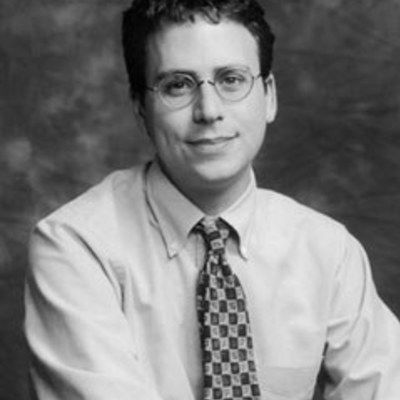
The Boy Who Heard Too Much
Matthew Weigman was blind, overweight, 14, and alone. He could also do anything he wanted with a phone. Sometimes that meant calling Lindsay Lohan. Other times it meant sending a SWAT team to an enemy’s door.
Showing 25 articles matching crime.

Matthew Weigman was blind, overweight, 14, and alone. He could also do anything he wanted with a phone. Sometimes that meant calling Lindsay Lohan. Other times it meant sending a SWAT team to an enemy’s door.
David Kushner Rolling Stone Sep 2009 25min Permalink

In 1967, a 56-year-old lawyer met a young inmate with a brilliant mind and horrifying stories about life inside. Their complicated alliance—and even more complicated romance—would shed light on a nationwide scandal, disrupt a system of abuse and virtual slavery across the state, and change incarceration in Texas forever.
Ethan Watters Texas Monthly Oct 2018 1h10min Permalink

Peggy Jo Tallas spent most of her adult life doing two things: taking care of her ailing mother and robbing bank after bank dressed as a pudgy, bearded cowboy.
Skip Hollandsworth Texas Monthly Nov 2005 35min Permalink

At 25, Stephen Glass was the most sought-after young reporter in the nation’s capital, producing knockout articles for magazines ranging from The New Republic to Rolling Stone. Trouble was, he made things up—sources, quotes, whole stories—in a breathtaking web of deception that emerged as the most sustained fraud in modern journalism.
Buzz Bissinger Vanity Fair Sep 1998 30min Permalink
According to the movie version, they died side by side, guns blazing, in the crosshairs of half a Bolivian regiment. It’s a great Hollywood ending that happens to be true, mostly: they left America… then died in Bolivia. What Hollywood didn’t know is that Butch and Sundance escaped.
Patrick Symmes The Daily Beast Sep 2019 Permalink
“This is the story of those 10 days, the new and relentless strain of gun violence in America, and the desperate need for us not to look away.”
Michael Paterniti GQ Apr 2016 30min Permalink

Dee Dee Blancharde was a model parent: a tireless single mom taking care of her gravely ill child. But after Dee Dee was killed, it turned out her daughter Gypsy had never been sick at all.
Michelle Dean Buzzfeed Aug 2016 35min Permalink

In October 2006, a four-year-old from Corpus Christi named Andrew Burd died mysteriously of salt poisoning. His foster mother, Hannah Overton, was charged with capital murder, vilified from all quarters, and sent to prison for life. But was this churchgoing young woman a vicious child killer? Or had the tragedy claimed its second victim?
Pamela Colloff Texas Monthly Jan 2012 50min Permalink
In November 1985, a woman who appeared to be a homeless drifter staked out the offices of 80-year-old banker Nicholas Deak, waited until he returned from lunch, then executed Deak and his secretary. As police wrestled her to the floor, she said “Don’t hurt me. He told me I could carry the gun.”
Mark Ames, Alexander Zaitchik Salon Dec 2012 25min Permalink

The story was told by Sports Illustrated, CBS News, and countless others: linbeacker Manti Te’o, Heisman trophy candidate and the face of Notre Dame football, was playing brilliantly despite the tragic loss of his girlfriend to leukemia early in the season. The reporters missed one key element of Te’o’s story, however: the girl hadn’t died. She couldn’t have. She didn’t exist.
Timothy Burke, Jack Dickey Deadspin Jan 2013 15min Permalink

After a botched bank robbery in 1990, Sture Bergwall, aka Thomas Quick, confessed to a string of brutal crimes. He admitted to stabbings, stranglings, incest and cannibalism. He was convicted of eight murders in all, and after the final trial he went silent for nearly a decade. But a few years ago, Bergwall came forward again—there was one more secret he had to tell.
Chris Heath GQ Aug 2013 45min Permalink
On May 12, 2014, Nicole Holder told Charlotte police that she had been assaulted by Greg Hardy. He was arrested, charged, and convicted. Then the case was dismissed on appeal. After a season out of the league, Hardy is playing for the Dallas Cowboys. Owner Jerry Jones has called him a “real leader.”
This is the story, and the photos, of what happened that night.
Diana Moskovitz Deadspin Nov 2015 15min Permalink
"Opium does not deprive you of your senses. It does not make a madman of you. But drink does. See? Who ever heard of a man committing murder when full of hop. Get him full of whiskey and he might kill his father."
A journey into New York’s turn-of-the-century opium dens to find out who gets hooked and why.
In the weeks after Davis shot the six cops, faked out the costly, nationwide manhunt for 17 days, and held a major portion of the NYPD to a standoff in the Twin Parks Houses near Fordham Road, huge black-and-white mug shot-like photos of a starry-eyed, baby-faced killer adorned the front pages of the tabloids under headlines like “They Won’t Take Me Alive” and the local news anchors excitedly invoked his name at the top of every show.
Barry Michael Cooper Village Voice Nov 1988 35min Permalink

"Some in Nice knew the man as one of the many playboy predators the city seems to beget—black hair slicked back off a shining brow, dress shoes tapering to varnished points, a dark shirt unbuttoned low to reveal the pectorals into which he had obsessively, unblushingly, invested himself. He was 31 but preferred older women, both for their erotic openness and, it seems clear, for their money. Those who knew him best knew him to be a cold and brutal man, detached, amused by little save rough sex and gore."
Scott Sayare GQ Jan 2017 20min Permalink
Miles Johnson is an investigative reporter for the Financial Times. He is the author of Chasing Shadows: A True Story of Drugs, War and the Secret World of International Crime and the host of Hot Money: The New Narcos.
“I’m really fascinated always by the ways in which people just have to do really boring parts of running a crime organization … I love the banalities of this stuff. We have a fictionalized version of crime groups and it’s obviously glamorous, and they’re really smart, but there’s a lot of stuff that’s bumbling incompetence as well or just quite unglamorous.”
Jan 2024 Permalink
“When I’m in Nigeria, I find myself looking at the passive, placid faces of the people standing at the bus stops. They are tired after a day’s work, and thinking perhaps of the long commute back home, or of what to make for dinner. I wonder to myself how these people, who surely love life, who surely love their own families, their own children, could be ready in an instant to exact a fatal violence on strangers.”
Teju Cole The Atlantic Oct 2012 15min Permalink
On November 12, 2012, after Belizean police announced that they were seeking him for questioning in connection with the murder of his neighbor, John McAfee began a well-publicized stint on the lam. Six months earlier, the writer had begun an in-depth investigation into McAfee's life. This is the chronicle of that investigation.
Listen to Joshua Davis disucsses this article on the Longform Podcast.
Joshua Davis Wired Dec 2012 35min Permalink
The jury room was a gray-green, institutional rectangle: coat hooks on the wall, two small bathrooms off to one side, a long, scarred table surrounded by wooden armchairs, wastebaskets, and a floor superficially clean, deeply filthy. We entered this room on a Friday at noon, most of us expecting to be gone from it by four or five that same day. We did not see the last of it until a full twelve hours had elapsed, by which time the grimy oppressiveness of the place had become, for me at least, inextricably bound up with psychological defeat.
Vivian Gornick The Atlantic Jun 1979 25min Permalink
As divided families argued over whether to stay or go, Jones saw part of his congregation slipping away. Al Simon, father of three, wanted to take his children back to America. "No! No! No!" screamed his wife. Someone whispered to her: "Don't worry, we're going to take care of everything." Indeed, as reporters learned later from survivors, Jones had a plan to plant one or more fake defectors among the departing group, in order to attack them. He told some of his people that the Congressman's plane "will fall out of the sky."
On Thanksgiving weekend, I received a phone call informing me that we had just captured approximately 300 al-Qaeda and Taliban. I asked all our assistant secretaries and regional bureaus to canvass literally the world to begin to look at what options we had as to where a detention facility could be established. We began to eliminate places for different reasons. One day, in one of our meetings, we sat there puzzled as places continued to be eliminated. An individual from the Department of Justice effectively blurted out, What about Guantánamo?
Cullen Murphy, David Rose, Philippe Sands, Todd S. Purdum Vanity Fair Jan 2011 55min Permalink
“The grand jury witness who testified that she saw Michael Brown pummel a cop before charging at him ‘like a football player, head down,’ is a troubled, bipolar Missouri woman with a criminal past who has a history of making racist remarks and once insinuated herself into another high-profile St. Louis criminal case with claims that police eventually dismissed as a ‘complete fabrication.’”
William Bastone, Andrew Goldberg, Joseph Jesselli The Smoking Gun Dec 2014 10min Permalink
What does it take for heroin to grab hold in the small, remote towns of America? Like any business, it starts with one man and an entrepreneurial dream.
“If you’d like to relive your horrible moment, if you want people to know what actually happened, talk to me. I will tell your story.” — Sean Flynn on the Longform Podcast
Sean Flynn GQ Jan 2015 20min Permalink
Rosie grew up in a succession of decrepit houses in South London with one man and a rotating cast of women, who claimed that they had found her on the streets as an infant. The man, Aravindan Balakrishnan—Comrade Bala, as he wanted to be called—was the head of the household. He instructed the women to deny Rosie’s existence to outsiders, and forbade them from comforting her when she cried.
Simon Parkin New Yorker Dec 2016 10min Permalink
Wrestler Jimmy ‘Superfly’ Snuka was one of the WWF’s first high-flyers in the 1980s. In 1983, his girlfriend, Nancy Argentino, died in a hotel room with a head injury. The case remains unsolved 30 years later—and after this article was published it was reopened.
The case against Snuka was dismissed earlier this month after a judge ruled him incompetent to stand trial. Snuka died on January 16th.
Adam Clark, Kevin Amerman The Morning Call Jun 2013 20min Permalink